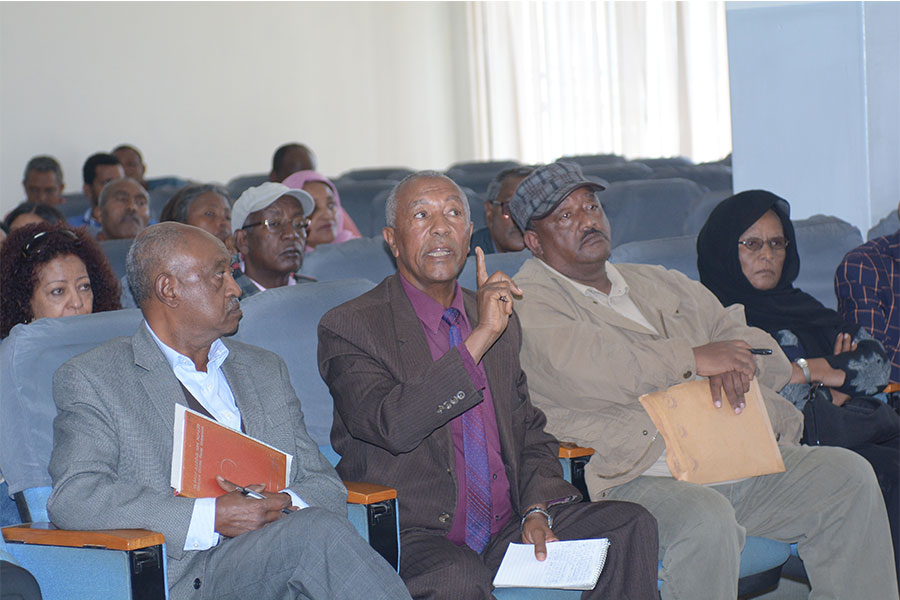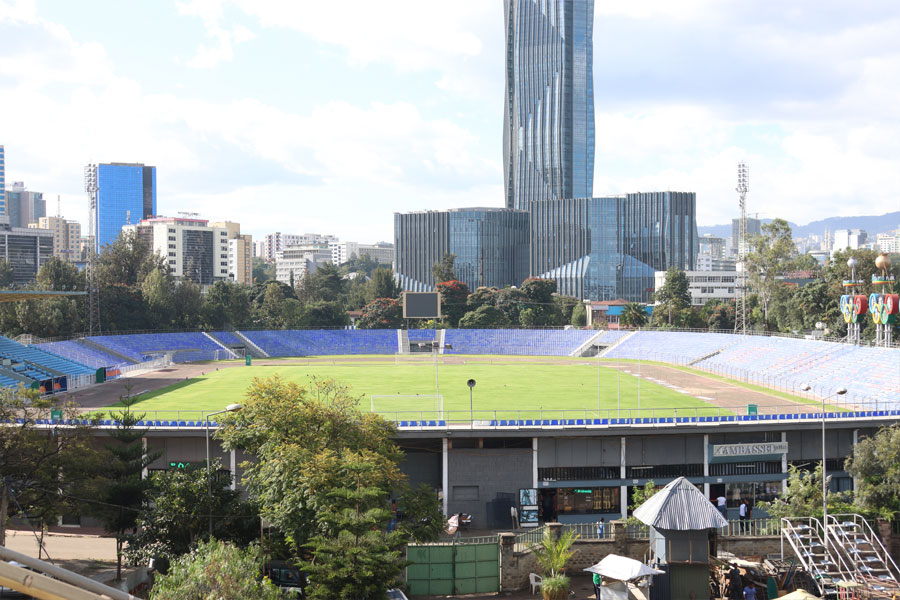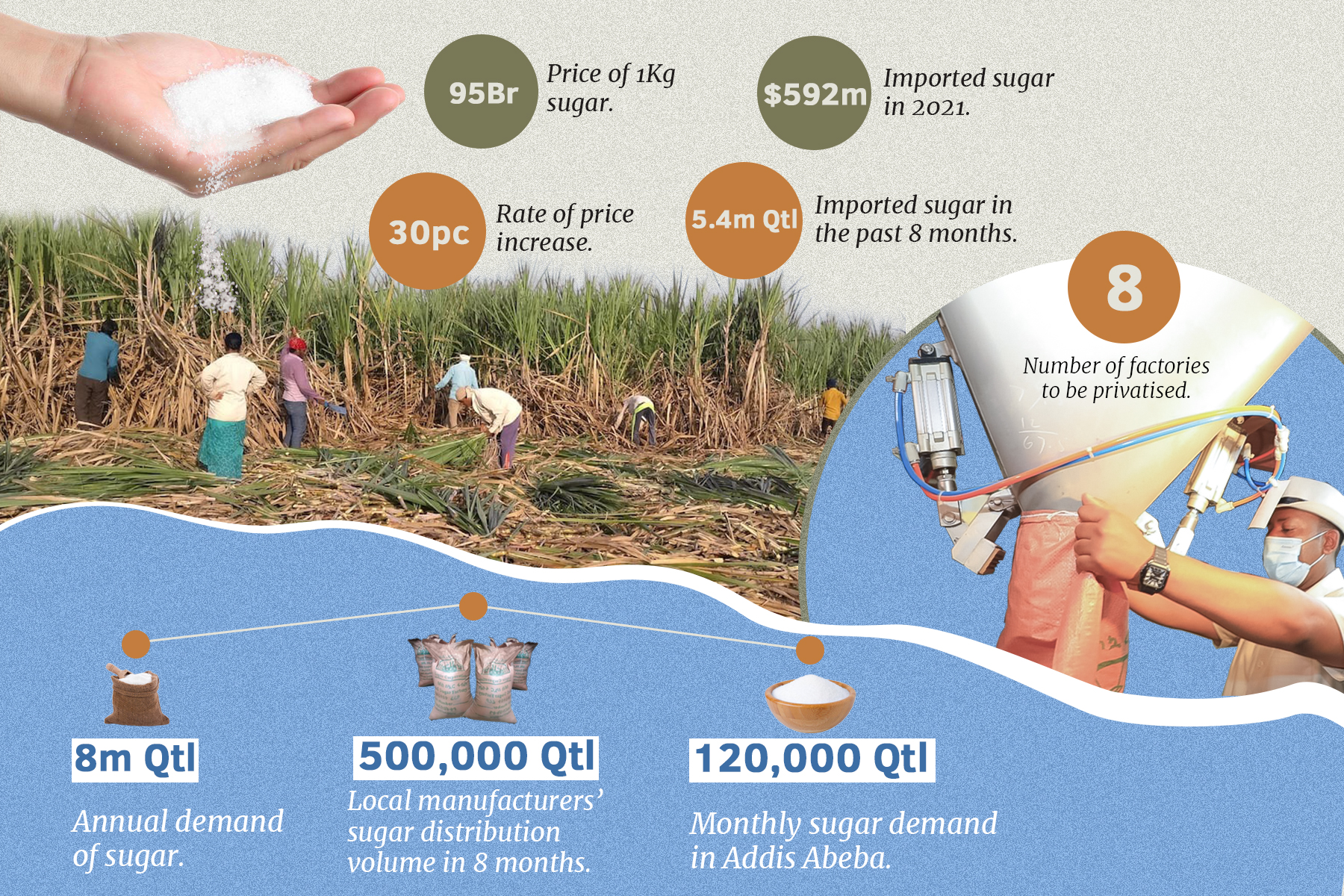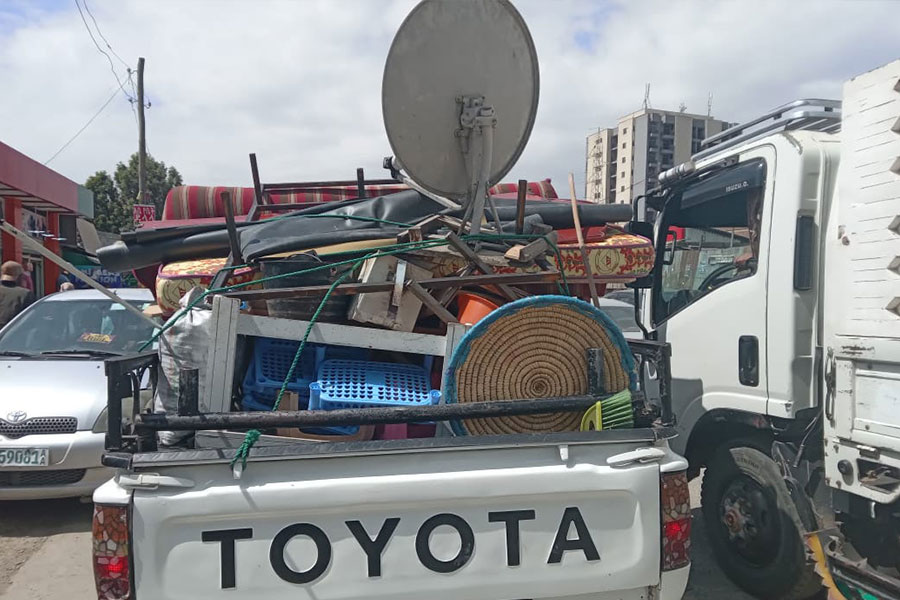
Fortune News | Dec 29,2018
Sitting in the living room of one of my friend’s, we were perplexed. “35,000 Br for a run-down old house? I will never pay that!” my friend exclaimed, holding her new baby girl. The cost of living in Addis Ababa has skyrocketed with unpredictable sporadic price changes.
The wild-wild west of the real estate business in Addis is being run by landlords who are inclined to add nothing of value to the property while demanding rent increases. A majority of those living in the capital rent properties, some with horror stories of landlords rationing water supply and cutting off power.
While these stories have been the highlight of many jokes and iconic television skits, urbanisation is part of Ethiopia’s new challenge. As highlighted on UN Habitat: The State of African cities published in 2014, though Ethiopia is the second most populated African country, it is one of the continent’s least urbanised. Only 20.7pc of Ethiopian residents live in urban settlements. This number is increasing each day. Yet the rental ecosystem is still fragile, supplying more humour for the satirists while also fueling locals' frustration.
Ethiopia and Africa, in general, are building toward an economy that encourages the middle class. And the progression of the middle class can only thrive when a healthy supply and demand is encouraged. Even though Ethiopia ideally functions as a free market economy, we have a country that reacts illogically to any of these studies. “A used car in Addis Abeba can cost more in resale value than its original price,” my other friend exclaimed. Baffled, I began to think where else this type of system could thrive.
The Ethiopian market is completely unpredictable, with consumers always paying the harsh price. The same apartment can double its prices within two months of inquiry. What could have changed in those two months? Nothing. Simply an experiment in betting someone out there would pay more - a bet made by manipulative brokers. The trend is also slowly infecting other growing cities, as grand houses sit uninhabited for months and sometimes years, because no one can meet the high calling price.
The inflated market keeps the rich property owners wealthy, while the middle-income families and individuals struggle to find reasonable housing. Even the condominium initiative, which was developed in 2005 in the hope of alleviating the housing disparity, now has morphed into an alternate life of its own. As even unfinished condominium rooms carry high calling cards, while increasing rent every six months.
The real estate industry has also attracted private landowners who are now opting to build apartments. Yet in a country like Ethiopia, with professionals on middle incomes struggling to find housing, our city is flooded with luxury apartments and houses. Those bold luxury labels hold a promise they cannot deliver. While we muse at even the mass production of this growing industry, it does beg the question, who are they building for? The middle-income earning families and individuals are being pushed down the ladder. They are being forced to pay outrageous amounts of money for services and properties that are not worth the value they are being asked for. These actions are eradicating what could become a thriving middle-income generating population.
In a private apartment complex in Haya Hulet, as the building manager closes the door to yet another untidy, unmaintained apartment, he says over his shoulder, “Don’t forget my commission.” The last stop of a renegade attempt at extorting money from people who are simply trying to find a suitable living. This man, who had done nothing but open the door to an apartment, wanted money. This industry continues to sprout more and more individuals with malicious income-earning schemes, who do not add an ounce of value to the process of property rental or procurement.
In a supposedly free-market industry, who is really looking out for the consumer?
Consumers are fending for themselves as the immoral brokers hike up housing prices for personal gain. It is outrageous to ask for prices equivalent or more expensive than Paris in Addis Ababa while offering none of the expected amenities.
Even those offering modern solutions like the online posting of properties, to alleviate the tedious process of shuffling across the city to view homes, do not offer solutions to most Ethiopians. The prices found online are mostly displayed in US dollars set at extraordinary prices, which only cater to making life easier for the expat community in Ethiopia. The hiked prices are often paid by embassies and non-governmental organisations and not out of personal pockets.
A need for intervention is long overdue. Property renters are being forced to move because of rent constraints. Rules and regulations could stabilise this market that seems keen to self-destruct.
Boundaries are good for communities to thrive and grow. Landlords can make money reasonably without having to extort money. Property renters can also do their part in caring for their rentals while paying what is expected of them. The challenge is there, but so is the solution that can benefit a fair society and a healthy rental ecosystem.
PUBLISHED ON
Aug 31,2019 [ VOL
20 , NO
1009]


Fortune News | Dec 29,2018

Agenda | Oct 27,2024

Fortune News | Apr 06,2024

News Analysis | Mar 04,2023

Fortune News | Mar 05,2022

In-Picture | Jan 19,2024

Fortune News | Aug 19,2023

Featured | Sep 14,2019

News Analysis | May 06,2023

Commentaries | Feb 25,2023

Dec 22 , 2024 . By TIZITA SHEWAFERAW
Charged with transforming colossal state-owned enterprises into modern and competitiv...

Aug 18 , 2024 . By AKSAH ITALO
Although predictable Yonas Zerihun's job in the ride-hailing service is not immune to...

Jul 28 , 2024 . By TIZITA SHEWAFERAW
Unhabitual, perhaps too many, Samuel Gebreyohannes, 38, used to occasionally enjoy a couple of beers at breakfast. However, he recently swit...

Jul 13 , 2024 . By AKSAH ITALO
Investors who rely on tractors, trucks, and field vehicles for commuting, transporting commodities, and f...

Sep 13 , 2025
At its launch in Nairobi two years ago, the Africa Climate Summit was billed as the f...

Sep 6 , 2025
The dawn of a new year is more than a simple turning of the calendar. It is a moment...

Aug 30 , 2025
For Germans, Otto von Bismarck is first remembered as the architect of a unified nati...

Aug 23 , 2025
Banks have a new obsession. After decades chasing deposits and, more recently, digita...